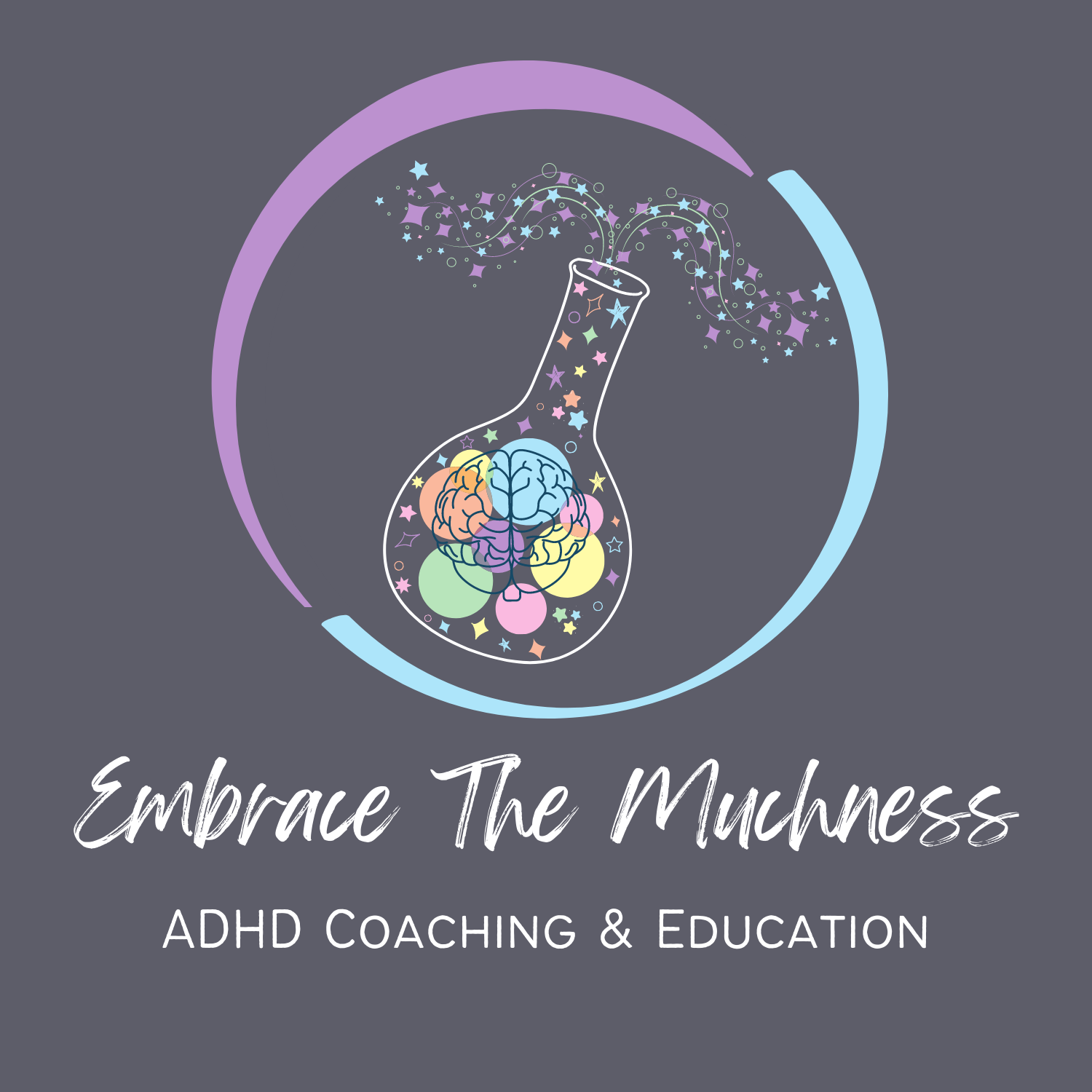ADHD & Grief: When “Out of Sight, Out of Mind” Shows Up in Mourning
Last Friday marked three years since my dad died. He passed on Halloween. I still don’t know what to make of the symbolism in that. He actually hated Halloween (occupational hazard of being a bar owner I guess). In his words: “People get bold when they’re in costumes.” Checking IDs apparently felt like an extreme sport those nights.
So, a part of me likes to imagine that after a couple weeks of being in the hospital, Halloween rolled around and he just noped right on out of this world.
Now I’m going to be honest in a way some ADHDers will relate to:
Because the anniversary of his death fell on Halloween, a workday + trick-or-treating + shuttling a kid to a haunted playhouse + cooking + cleaning + sleeping + the general “adulting and keeping tiny humans alive” cycle, I didn’t think much about him on the actual day.
It hit a few days later instead, when the demands slowed down enough that I had the space to reflect a bit.
And this is one of the first things I want to name about ADHD and grief:
“Out of sight, out of mind” applies to grief, too.
For ADHDers, “out of sight out of mind” is tied to working memory. If there’s no cue, prompt, or association, the thought simply doesn’t pass through, in the same way that a bill due date or school dress-up day won’t magically appear in my mind without a reminder.
There’s this quiet shame many ADHDers carry around when “out of sight out of mind” shows up around thinking about their lost loved one. People often say:
“I think about them every day.”
And in hushed, guilt-soaked tones, clients tell me (and I have felt myself):
“...I don’t think about them every day.. Sometimes I go days, weeks, even months without thinking about them unless something triggers the memory.”
Cue guilt spiral:
If I don’t think about them regularly, what does that say about me? Am I a bad daughter? A narcissist? Was I not as close as I thought?
Three years out, I don’t judge myself for that in the same way. But early on? It was confusing. Was I subconsciously avoiding my feelings? It didn’t feel like that was the case.
A strength and a challenge
As with everything else with ADHD, this experience comes with both strengths and challenges:
Strength:
If we have a clear distraction or purpose (work, parenting, urgent tasks), we can compartmentalize. Life doesn’t have to stop every single day. And in some ways, that can be protective.
Challenge:
When the grief does surface, it can hit like an unexpected wave that swallows you up. Especially paired with the emotional intensity that is experienced by ADHDers in general. Then you add the “Oh no… I haven’t thought about them in so long” guilt.
It can also stretch out the processing timeline. If it happens in random but intense bits, that may mean it could take longer than it may for someone who experiences consistent back of the mind thoughts.
What can help grieve in a more intentional way?
If you relate to this and want to be able to stay more connected to your grief, not constantly, but intentionally, here are a few practices that have helped me (and my clients):
Schedule intentional grief time
Our brains run fast. In order to connect with our feelings we may really need to intentionally set up a process and environment to truly connect with our memories, emotions and imagine the reality of a world without someone we love.
Use visual cues
Visual prompts (things you see) can help cue thinking about that person.
Some of the things I’ve used:
Adding photos of my dad to the TV screensaver
A Christmas ornament with his picture
Keeping his memorial pamphlet on my dresser
Engage your senses + memories
Sensory memory is powerful, especially for neurodivergent brains.
Some of mine:
A playlist of 70s music from his memorial (I’m listening while writing this)
A video of him dancing at my wedding (rare moment)
The slideshow I made when he sold his bar
Hashbrowns — made from scratch, like the extra-crispy ones I’d snag when working lunch shifts at the bar with him
Goulash — another meal he’d make at the bar I enjoyed
And sometimes, watching emotional shows or movies opens the window too. Especially scenes about losing a parent, even if the story is different. For those of us who tend to lead with logic or detach when overwhelmed, sensory cues can help us drop into emotion.
Grieve your way
There’s no right way to grieve. There’s no timeline. There’s no “think about them daily” rule for your grief to be valid. Grief looks different for everyone. And the same person can have different grief experiences across different losses in their life. This isn’t only an ADHD thing, many people grieve in waves and don’t think of their loved ones every day. However, when this happens with ADHD the self-judgment and guilt can be much louder. ADHDers already hold so much guilt and shame around forgetting things, so when it shows up in grief, it hits a familiar nerve: the fear that forgetting means not caring. (It doesn’t.) It never has. It’s simply just another way that our working memory challenges show up.

